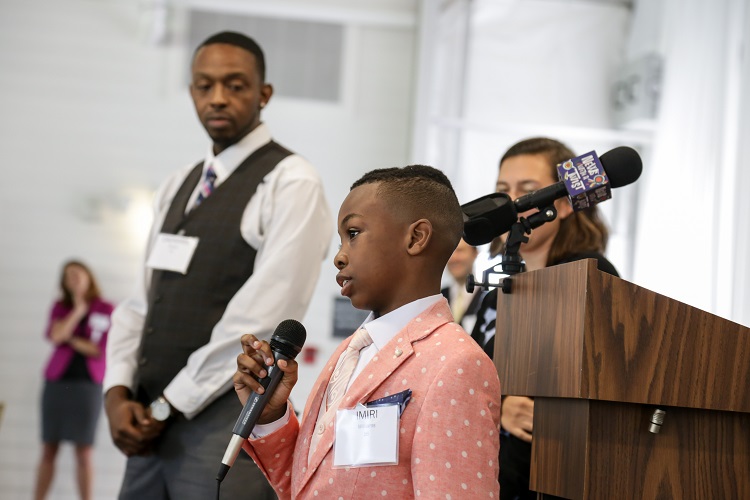Preparing the Next Generation of Civil Rights Leaders

By Cadarris Rucker
Cadarris Rucker is a 4th grade teacher at KIPP Believe Primary and 2017 New Orleans Excellence in Teaching Award winner. When we asked him why he teaches, he shared with us the following. Nominations for the 2018 awards are open through December 11th.
In May of 1963, in my home state of Alabama, young people became increasingly active participants in the movement for civil rights. Thousands joined the marches, the protests, and ultimately, the arrested. But the “Children’s Crusade” was a turning point. Hundreds of children marched in Birmingham in protest of segregation and soon after President Kennedy publicly supported federal civil rights legislation.
Each day in my class, at KIPP Believe Primary, I see a room full of civil rights leaders. It is up to me to help them realize their power. It’s up to me to teach them what they can accomplish.
Social justice and education were the bedrock on which my little brothers and I grew up. My mother was an active member of various civil rights organizations such as the NAACP and SCLC, (Southern Christian Leadership Conference).
She was also a pivotal member of the CCBC (Concerned Citizens for a Better Community). She took us to museums and taught us the history of our state, of its struggles, and its progress.
She also taught us that we must keep fighting. Far too many of the inequities she worked to end, still permeate throughout our lives. In New Orleans, more than a third of children are born into poverty. At my school, 90% of our students are considered economically disadvantaged. Economic opportunity remains inequitably distributed in our city. Despite making up around 60% of the total population in New Orleans, over 95% of the juveniles we arrest are Black. We still live in a country where oppressive systems and structures place undue burdens on children of color.
That is why I teach.
The fight for equal rights for all is as necessary today as was when my mom first marched. As teachers, we must prepare our children not only to be good scholars, but also to be ready to dismantle the structures that seek to limit their futures.
Great teachers can change lives. Even one effective teacher can help students advance one-and-a-half to two years academically in a single year as compared to an average teacher. Research shows that the opportunity to learn from educators of color can have additional positive impacts on academic achievement for children of color—who make up over 90% of New Orleans public school students. Students who have at least one black teacher perform better on state tests, are less likely to drop out, and show a greater interest in heading to college. College graduates earn more, report higher job satisfaction, and are less likely to be unemployed.
Beyond improved economic mobility, the intangible benefits of a great education can help students build confidence, become self-actualized, and change the world.
Great Black teachers can change lives. Despite the potential power of black educators, we remain underrepresented in classrooms across the country. Black males only account for 2% of the teachers in the country. We need to push the conversation about the impact of black men in the classroom into the forefront of our discourse. I grew up thinking about being a teacher, but pursued graphic design in college. My path to teaching reemerged following a meeting with Teach For America and a choice to be part of a movement for equity in education much like the movements my mother taught me about growing up.
My class studies the leaders of the Civil Rights Movement. Pictures of prominent Black leaders, scientists, artists, athletes, community organizers and agents of change such as Martin Luther King Jr, Maya Angelou, Langston Hughes, Oprah Winfrey and James Baldwin cover the walls. I balance the standards and expectations that are in place, but create a curriculum that can empower my scholars with confidence and self-love. Our theme is advocacy, voice, and choice. We don’t conform; we push the envelope. We raise our consciousness by discussing the school to prison pipeline and achievement gaps. Mental liberation is our goal.
Being a teacher allows me to prepare the next generation of civil rights crusaders. We need them now as much as ever.
← Back to News